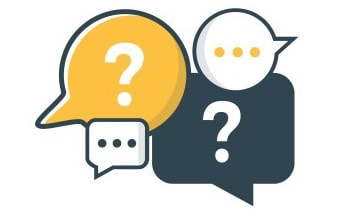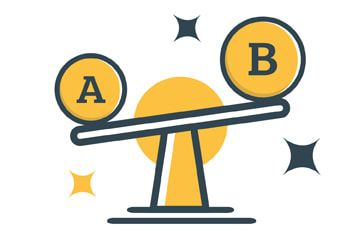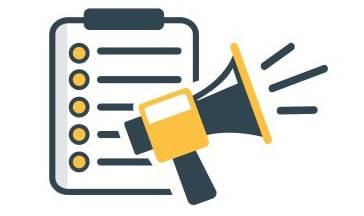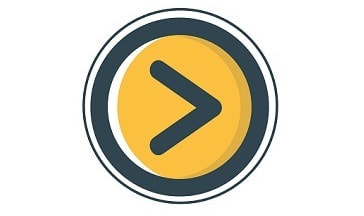The Definitive Guide to Common Interview Questions for Student Jobs in New Zealand
Attend a job interview and have the confidence to shine by following our essential tips and suggestions
Updated 14 July 2024
Going to a job interview is unfamiliar and a little daunting for any school student. Our guide makes it easy by guiding you through the process, as well as outlining popular job interview questions and helpful template answers.
We aim to give you the confidence to interview well with any job you apply for. While there may be times when an unusual question is asked, we believe our guide is the most complete in New Zealand. Our additional tips cover you for the rest, giving you the confidence to shine at the interview.
Whatever you are asked, make sure your answer is genuine and factual. Don’t memorise ‘canned answers’ – instead, take the time to get comfortable with what you may be asked and put together ideas that reflects you and your experience.
Lastly, you may be asked ‘is there anything you’d like to ask’ at the end of the job interview. We have some suggested questions that engage your interviewer and guide the conversation in your favour.
This guide covers:
We aim to give you the confidence to interview well with any job you apply for. While there may be times when an unusual question is asked, we believe our guide is the most complete in New Zealand. Our additional tips cover you for the rest, giving you the confidence to shine at the interview.
Whatever you are asked, make sure your answer is genuine and factual. Don’t memorise ‘canned answers’ – instead, take the time to get comfortable with what you may be asked and put together ideas that reflects you and your experience.
Lastly, you may be asked ‘is there anything you’d like to ask’ at the end of the job interview. We have some suggested questions that engage your interviewer and guide the conversation in your favour.
This guide covers:
Eight Interview Questions (and Suggested Answers)
In this section, we outline eight interview questions which are often used when interviewing school students for jobs. Our suggested answers are guidance only – please take the time to think about how you would reply, and use our template as a baseline.
Can you tell me a little about yourself?This is the most common question, and you need to have a succinct answer. What employers want to hear is a pitch. Point out two or three accomplishments or experiences that you’re most proud of, and relate these to the job.
We understand that many teens will be a bit lost with what to say. To help you put together some ideas, think about soft skills you enjoy and are good at. These can be
Just because these roles are not paid, they still should be mentioned. Also, if you don't play sport, you will still have plenty to talk about. Just be concise (i.e. short and sweet) and excited (have enthusiasm) in your answers. For example, if you’re applying for a retail job, your answer could be: “I’m a Year 12 student and really like to get involved in my local community. I help my younger brother with maths and science homework, and have recently helped two family friends move house. I have a lot of experience with people of all ages, and have helped out at my uncle's company". |
How did you hear about the position?This is a question that lets you show initiative and enthusiasm for the company. You may have seen it on Student Job Search of the company’s website, but your answer is an opportunity to show your passion for and connection to the company, and what about the job stood out to you.
For example, if you’re applying for a job at The Warehouse and saw the position on the company’s website, your answer could be: “I regularly check The Warehouse’s careers page to help me towards my goal of working at The Warehouse. I got an alert that you had published student opportunities, and I applied. I like the company values that are outlined on the website, as well as the team member profiles for the roles I wanted to apply for, so I knew I wanted to be a part of the company”. |
What do you know about the company?This is a question that can go in two directions and is asked to assess whether or not you care about the company’s mission and objectives. Some people answer the question my repeating everything in the company’s ‘About’ page, but this doesn’t show any connection. Every big company will have an ‘About’ page, so have a read of that and look for keywords that stand out. This will help you frame the answer.
It’s helpful to show that you understand the company's goals – your answer should include some of the keywords used by the company. For example, if you’re applying for a fast food job such as McDonald’s, your answer could be: “I know that each McDonald’s restaurant is locally owned, which means the local area prospers. I like the McDonald’s values of “Got it, Up for it, Onto it” and know that I can live those values every day. Having dined at McDonald's often, I see the excellent customer service that is always genuine, and the team dynamics that work together to deliver the right orders promptly”. |
Why do you want this job?This is a question to test how passionate you are about the job, so a great answer will convince the interviewer that you are the right person. The best way to answer is to identify a couple of key factors that make the job an excellent fit for you. You can finish off with a sentence about why you love the company.
For example, if the job is at a retail fashion store like Glasson’s or Just Jeans, you could say: “I love finding solutions for people as it gives me a lot of satisfaction. I really like make people feeling better about their appearance, so finding them the right clothes would be my focus. I am always welcoming to new people and friendly, and every customer experience will give me new skills for the next customer. I have always been passionate about affordable, high-quality fashion, and from my purchases, I think you are doing great things, so I want to be a part of it”. |
Why should we hire you?This is a very direct question, and if it does get asked, the best way to answer it is to talk about your skills, enthusiasm and your ability to deliver exceptional results for the company. Your answer needs to cover three things - you can not only do the work but also deliver exceptional results, and you will easily fit in with the team and culture.
For example, if you’re applying for a job at KFC, your answer could be: “I’m incredibly reliable with an excellent school attendance record, so I can be trusted to work every shift assigned. I am a fast learner, listen and work well in team environments because I listen and anticipate the needs of others. I have a can-do attitude, like problem-solving and customer service and making people feel valued. I want the job because I know the work environment and demands are unique and it will give me a lot of new skills. |
What are your strengths and weaknesses?It would be best if you answered this question honestly and accurately, and not what you think the interviewer wants to hear. Your answers should also be relevant and specific. For example, don’t say “people skills”, but instead, answer with “the ability to work with people of all ages and background effectively”. You can then follow this up with an example of you have demonstrated your strengths.
With regards to weaknesses, the interviewer is asking the question to assess how honest and self-aware you are. It’s all about answering with something that you struggle with but are working towards improving. Answers such as “I have no weaknesses” or “I think I’m quite lazy” are each bad for different reasons. A better answer is “I have never been strong at public speaking, but I have joined the school debating team to improve this”. |
How would your teachers and classmates describe you?This is similar to the strengths and weaknesses question, but the answer should be well-rounded.
A good answer would be similar to this: “I would most likely be described as hard-working and focused, and as someone who takes the time to listen. However, my classmates would probably say that I am competitive. I believe I like to make the most of every opportunity, which is why I believe teachers would say that I am determined”. |
How do you deal with pressure or stressful situations?The objective here is to describe a stressful situation, outline your go-to stress-reduction tactics and conclude with how you managed it successfully.
Two good answers would be similar to this: “When I sit exams, I make sure I follow my method of preparation to minimize stress and pressure. I set aside two days to revise the materials, and then I practice old exam papers and assessments. I find that this technique gets me comfortable with what I am expected to know, and after practising enough past questions, I can target areas I need to improve in. This means I can approach exams with confidence and feel far less stress. or "When I sit an exam, I read a question and think about it writing notes to plan out an answer. When I study, I take a 10 minute break ever hour to refresh my mind and stay on track". |
Three Suggested Questions to Ask Job Interviewers
At the end of an interview, you may be asked ‘do you have any questions?’. Many people fail to take advantage of this opportunity to show initiative and interest in the job. Our suggested questions and their reasons are outlined below. All of the questions listed below are open-ended, meaning you won’t get an awkward one-word answer. It’s best to ask one or two questions, and we’ve listed them in our suggested order of priority.
What do you most like about your job?
This question shows you’re interested in the position and want to know more about the day-to-day experiences. It’s a positive question, although the answer is unpredictable, you can keep the conversation going with a follow-up question.
What are some of the challenges in your day-to-day work?
This question asks for insights into the ups and downs of the job and is again engaging. You show much initiative for asking this, and it demonstrates you care about the job.
What initiatives is the company introducing or planning to roll out?
This question is more suitable for big retail companies like The Warehouse, New World or Stirling Sports, rather than local cafes or restaurants. Asking the question signals that you’re engaged and interested in the company’s day-to-day activities and long-term objectives. In essence, it shows that you’re eager to be part of the company’s future.
What do you most like about your job?
This question shows you’re interested in the position and want to know more about the day-to-day experiences. It’s a positive question, although the answer is unpredictable, you can keep the conversation going with a follow-up question.
What are some of the challenges in your day-to-day work?
This question asks for insights into the ups and downs of the job and is again engaging. You show much initiative for asking this, and it demonstrates you care about the job.
What initiatives is the company introducing or planning to roll out?
This question is more suitable for big retail companies like The Warehouse, New World or Stirling Sports, rather than local cafes or restaurants. Asking the question signals that you’re engaged and interested in the company’s day-to-day activities and long-term objectives. In essence, it shows that you’re eager to be part of the company’s future.
Ten Tips for Interview Success
Our list of job interview facts gives you everything you need to know about how to behave at a job interview, as well as winning tips to make a positive and long-lasting impression. Remember – you only get one chance at a job interview, so showing up late or being unprepared are going to count against you. In every interview, you will be assessed as soon as you arrive at the company, so first impressions are everything. Our tips include:
For example - describe a time when you had responsibility at school?
Suggested answer – “Earlier this year, the school had two open days for prospective students and their parents. I was selected as one of five student ambassadors to take parents and children on tours of the school. I wanted to give the groups a first-rate experience, so I planned out a route of classrooms which showed the best of the school, rather than just walk around from room to room. My itinerary included the new music room, gym, computer room, sports equipment room and I got the heads of Science and Maths to do talks at the start or end of the tour with a Q&A session. The tours went very smoothly, were well-balanced and the school received a lot of positive feedback about my tours”.
- Bring essential items - this includes 5 copies of your CV, a list of references and a pen and paper to make notes - even if you don't end up writing anything, having paper beside you looks like you are engaged and want to learn.
- Arrive on time – this is essential. If your interview is at 10 am, arrive around 9:40 am. You’ll feel a lot more relaxed, as well as demonstrating you are punctual. Plan ahead and be on time.
- Dress smartly – interviewers don’t like scruffy, as it won’t be in keeping with the company’s image.
- Smile at everyone you meet – everyone knows each other, so be polite and attentive to the receptionist as they are likely to know the interviewer.
- Speak clearly with varied tones – for every interview question, make sure you talk with a tone that shows you’re interested and enthusiastic.
- Don’t rush answers – before speaking, think about the question so you can give a well-structured response.
- Make sure you understand the questions – listen to questions carefully, and always ask for clarification if you don’t understand something. Don’t answer something you don’t understand – that’s not going to help you get the job.
- Don’t talk bad about other jobs and/or people – job interviews are positive places, so avoid any mention of other jobs or people you haven’t enjoyed working with.
- Be confident in your experience and skills – don’t start sentences with “I only have…” or “I don’t have…” or “I have not…”. Instead, tell the interviewer what you have done, experienced and can offer to the job.
- Follow the ‘STAR’ method for answering questions about your experience - situation, task, action, result. This structures the answer succinctly and gives an answer that doesn’t leave anything out. It covers:
- Situation – describe what the situation was
- Task – describe the task you had to do
- Action – describe what you did to achieve the task
- Result – describe the final result
For example - describe a time when you had responsibility at school?
Suggested answer – “Earlier this year, the school had two open days for prospective students and their parents. I was selected as one of five student ambassadors to take parents and children on tours of the school. I wanted to give the groups a first-rate experience, so I planned out a route of classrooms which showed the best of the school, rather than just walk around from room to room. My itinerary included the new music room, gym, computer room, sports equipment room and I got the heads of Science and Maths to do talks at the start or end of the tour with a Q&A session. The tours went very smoothly, were well-balanced and the school received a lot of positive feedback about my tours”.
Final Thoughts
Remember, job interviews are like sitting exams or tests – the more prepared you are, the better it will go. Practice makes perfect, and the more you do, the better you will interview. We wish you the best of luck and hope you enjoy the experience.
If you have any suggestions or improvements for this guide, please contact our editorial team.
If you have any suggestions or improvements for this guide, please contact our editorial team.
Related Guides
Student Money Saving Guides
Student Money Saving Guides
Special Thanks
In the preparation of our tips and section, MoneyHub would like to thank Kay Wallace, HOD Careers at Western Springs College in Auckland for her generous contributions. If you're a teacher, student, graduate or parent with tips to share, please contact us - we value every contribution we receive.














